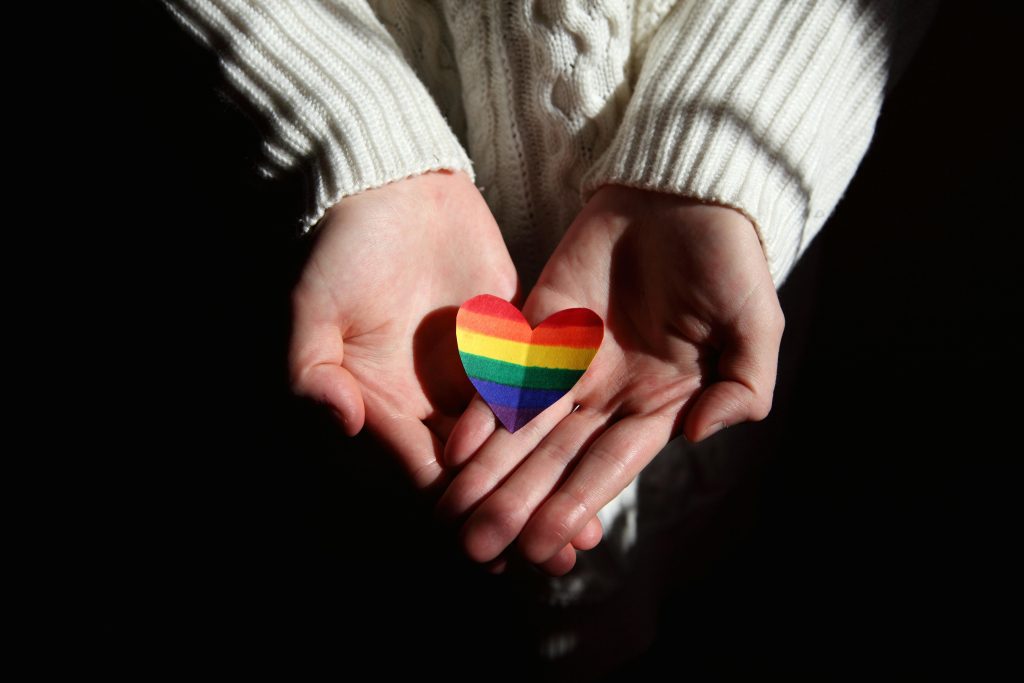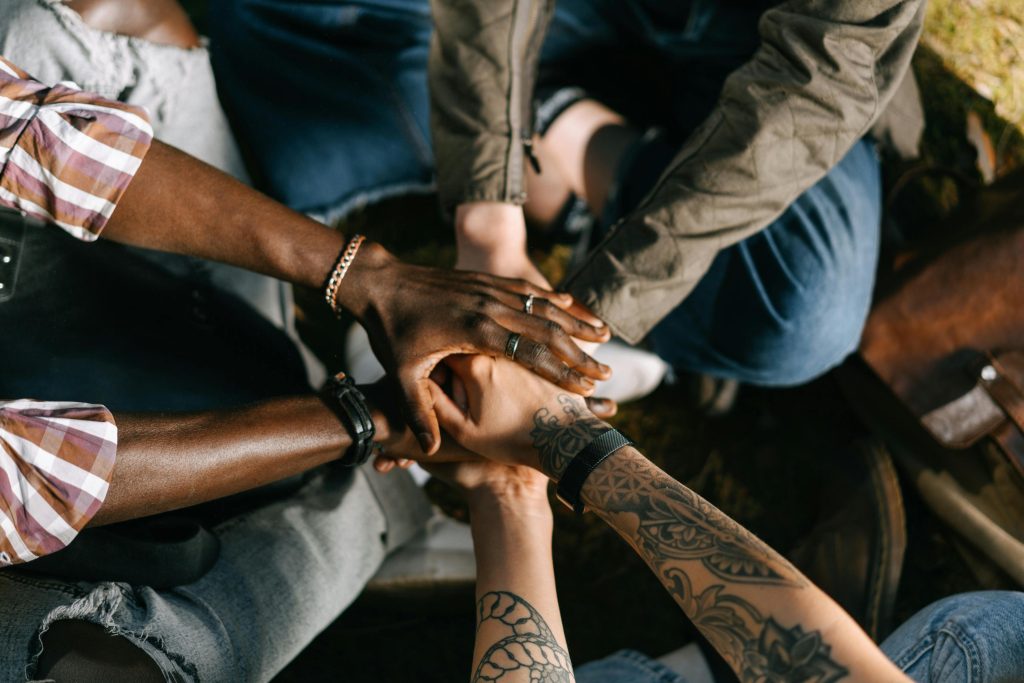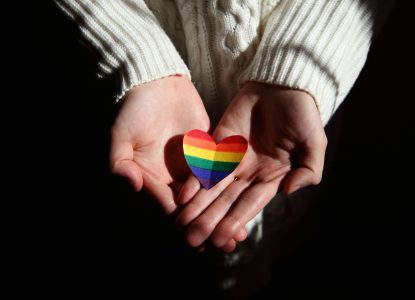By Marian Edmonds-Allen
— —
One of the most divisive issues throughout the world is the perceived – and often real -conflict between religion and LGBT (lesbian, gay, bisexual and transgender) concerns. Political, ideological and theological clashes about LGBT and religion result in contentious places of worship, fractured families, even the loss of life due to suicide and hate crimes. It is seemingly a problem without solution.
There is, however, a solution. Freedom of religion and belief, powered by covenantal pluralism, works to heal polarizing topics – even LGBT and religion divides.

Covenantal pluralism was conceived in the 1970’s by Rabbi Irving Greenberg (link to bio) as described his own experience of working to prevent another Holocaust by collaborating with those who he blamed for the atrocity: Christians. His life-changing experience of encountering someone he thought of as “other”, recognizing in them the image of God and his own kin, and then collaborating with his new friends and colleagues to counter antisemitism and save lives created a theological framework that persists to this day in various forms.
The Templeton Religion Trust (link to about), following the legacy of the founder, Sir John Templeton (link to bio) and Sir John’s “humble approach” (The Humble Approach,1981) adapted covenantal pluralism beyond purely religious settings in ingenious ways. Covenantal pluralism thus became known for providing a framework for mutual assistance across difference while maintaining one’s own values and beliefs. This framework also provides space for differences of theology – and not ascribing moral equivalence to their colleague – whom they may have significant disagreements within multiple areas.
One faith-based NGO has adopted covenantal pluralism as a key strategy in healing persistent LGBT and faith divides while promoting personal integrity and fidelity to important religious beliefs and covenants. This organization, Parity, (link) has developed a “Covenantal Pluralism Process” that allows participants to maintain the integrity of their beliefs and convictions while reaching out to assist or collaborate with those whom they may have profound theological differences. The key ingredient in this process is freedom of religion, belief, and nonbelief (FoRB).
Parity (formerly Presbyterian Welcome) is an international faith-based nonprofit that was formed in New York City in 1997. Started by Rutgers and Jan Hus Presbyterian Churches, Parity has supported LGBT people of faith and worked to heal divides and divisions through collaborative partnerships across difference. Central to this international work to heal divides and promote human dignity is religious liberty and covenantal pluralism. In service to human dignity and freedom of religion, belief, and nonbelief worldwide, Parity has created a Covenantal Pluralism Process to make the covenantal pluralism and FoRB principles actionable as a means for healing even profound divides.

The Covenantal Pluralism (CP) Process is a shared value process with one or more partners to achieve an agreed-upon goal. One current example is from the LGBT International FoRB Roundtable (RT), co-chaired by Simran Singh Stuelpnagel, Marian Edmonds-Allen and with honorary co-chairs Katrina Lantos Swett and The Honorable Ileana Ros-Lehtinen. This Round Table has the mission of “Affirming the positive role that freedom of religion, belief or non-belief has or should have, for everyone, everywhere; and to advocate under the UN Universal Declaration of human rights and other international instruments against religious persecution that bar the religious freedom and human rights of any person of any or no religious tradition.”
The LGBT International FoRB Roundtable (RT) has determined that two core values for the organization are freedom of religion, belief and nonbelief (FoRB) as well as respect for human dignity. These guiding values allow for the RT to assist individuals and organizations that have different theological understandings of human sexuality. Such differences are recognized as different “covenants” and, using covenantal pluralism, it is possible to work together towards a goal without ascribing moral equivalency – in essence, with protection from “cancelling” by onlookers who oppose collaboration across difference.
In this example, the theological beliefs and positions of a persecuted person needing aid (or a collaborating organization), are an extension of the LGBT RT’s core values: FoRB as well as human dignity. Thus, there are no barriers to assisting or collaborating with a variety of individuals and organizations, including often seemingly non-aligned or “surprising” ones. This CP Process propels the power of FoRB for achieving human dignity goals, both primary and secondary, as well as creating the opportunity for friendship and collaboration across difference, and without moral equivalency.
The CP Process is a Shared Values Process that can also serve as the framing for an Individual Values Process that can guide individuals in their life choices and decision-making. For an individual, the CP Process includes deciding one’s key “covenant” or guide, whether it is religious or non-religious belief or conscience. These covenants provide the core value terms that are defined and placed into a values matrix which creates congruence and a measure of integrity for life choices, decision making and problem solving.
Presented as a formula, the covenantal pluralism process is:
“How does an identified core value assist in creating a relationship with a potential collaborator to address an identified problem or issue? (core value + collaborator = solution)

The Covenantal Pluralism Process thus allows for:
- Primary problems to become the sole focus, rather than theological differences;
- Innovative solutions will emerge from multiple, unique perspectives to achieve impact;
- while integrity and respect are maintained for every participant throughout the process.
In a time of increasing polarization and worries about deep fakes and instances of artificial intelligence used for nefarious purposes, we have a hopeful way forward.The unique values, virtues and covenants of human beings. Through our individual integrity and core values we are empowered to come together to ensure dignity for all people, everywhere. No exceptions.
— —
Rev. Dr. Marian Edmonds-Allen serves as executive director of Parity, an NYC-based national nonprofit working at the intersection of faith and LGBT concerns. She’s also a Research and Teaching Associate at Harvard Medical School’s Neurospirituality Lab and co-chairs the International LGBT-FoRB Roundtable. With over 20 years of experience, she’s earned recognition as Q Salt Lake’s Person of the Year and a Petra Fellow for her work with LGBT homeless youth. Her research and passion focus on religious freedom and healing community divides. When not bridging divides, she enjoys skiing and outdoor adventures with her spouse and four children.


